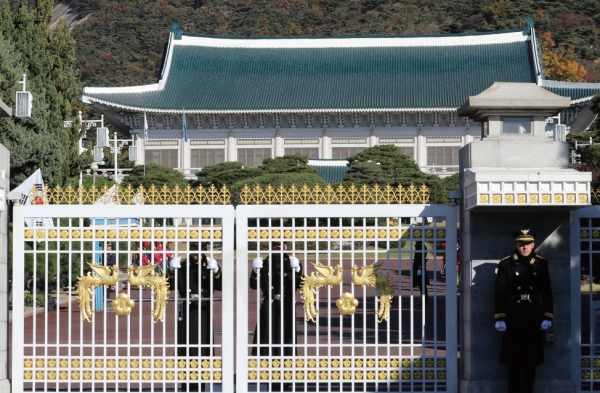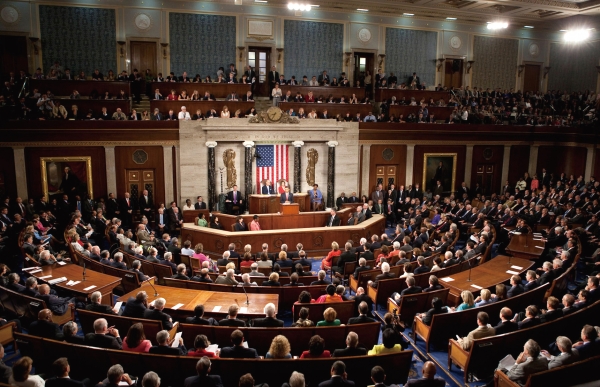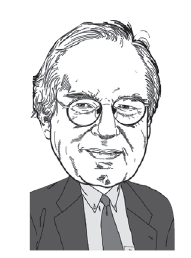한국은 수십 년 동안 험난한 정치 역사의 흐름 속에 잊혀지거나 해결될 때까지 끊임없는 정치적 논쟁에 휩싸여 있다. 문재인 대통령은 때때로 개혁을 무리하게 추진해 많은 시민들을 화나게 했다. 국민들은 대통령이 그러한 권력을 가져야 하는지 아니면 대통령이 총리를 지명하기보다는 국회에서 선출된 총리에게 실제 권력을 맡기며 거의 명목상의 국가원수로 남아야 하는지에 대해 궁금하게 여긴다.
내각제에 대한 찬성과 반대, 장단점을 두 나라에서 살펴보자. 미국의 예를 들어보면 국무총리는 없고 한국처럼 권력이 약하지 않은 대통령이 있다. 영국의 경우는 비록 왕이 국가수반으로 통치하고 있지만 총리에게 의심할 여지 없이 가장 강한 권력이 있다. 이 두 경우 모두 한국과 비교는 어렵지만 고려할 가치가 있다.

미국 시스템은 이상적이지 않을 수 있지만 국가원수이자 최고통치자인 대통령은 무제한의 권력을 가지고 있지 않다. 그는 행정부만 맡고 있고 입법부와 사법부 양대 기구를 상대해야 한다. 행정명령을 내릴 수 있지만 정책을 관철시키려면 상하 양원의 과반수의 지지를 얻어야 한다. 대통령이 소속한 당은 하원과 상원에서 한 석이라도 더 많은 과반수를 차지하는 것이 중요하다. 사법부 특히 대법원이 그의 권력과 위신에 대한 논란의 소지가 있는 조치에 대해 유리한 판결이 필요하다. 그는 대법관과 연방법관을 임명할 수 있지만 자신과 그의 정책에 반대하는 판결을 내리거나 다른 견해를 가진 사람들을 해고할 수는 없다.
미 대통령 뛰어넘는 권한을 가진 한국 대통령
이와는 대조적으로 한국의 대통령은 국회 내의 반대 세력이나 자신의 정책을 폐지하는 사법 시스템에 대해 별로 걱정을 할 필요가 없다. 시끄러운 정치인이나 올곧은 판사들로부터 같은 수준의 반대에 부딪치지 않는다. 문재인 대통령은 그의 권력 남용에 대해 점점 더 심한 비판에도 불구하고 미국 대통령의 권한 수준을 훨씬 뛰어넘는 압도적인 권력을 누리고 있다.
그래서 국회가 총리를 선출하는 개념이 그만큼 중요하다. 이러한 총리 역시 너무 많은 권력을 가지고 있어 문 대통령이 점점 더 비난을 받는 것처럼 자신이 원하는 것을 이루기 위해 정부를 뒤틀고자 하는 유혹 속에 빠지지 않을까? 누가 총리가 곧 대통령과 같은 구렁텅이에 빠져 자신을 경멸, 조롱, 정치적, 사법적 공격의 대상으로 만들 것이라고 말할 것인가. 그것이 최근 역사에서 한국의 역대 대통령이 마주한 운명이다. 해답은 총리가 얼마나 많은 권력을 가질 것인가에 달려 있는데 영국에서는 때때로 총리가 의회 선거를 요구하도록 강요당하고 있다. 여당이 확실한 과반 의석 확보 여부에 따라 총리를 퇴임시키고 새 총리를 선출할 수 있는 권한을 가진 의원들의 손에 패할 위기에 놓이면서 총리는 정치적 생존을 위해 싸울 수도 있다.

한국의 대통령제 폐해로 고려되는 내각제의 허와 실
입법부 과반수 찬성의 필요성은 영국 총리와 수많은 다른 나라들의 통치를 위태롭게 한다. 이탈리아는 2차 세계대전 이래 분노한 군중들이 오랫동안 이탈리아를 이끌었던 지도자 베니토 무솔리니와 그의 부인을 살해하면서 수많은 총리들이 배출됐다.
일본은 오랜 기간 집권당이었던 자민당이 새로운 지도자의 지배를 받게 되면 주기적으로 총리를 교체한다. 일본 역사상 어느 총리보다 긴 8년 동안 총리를 지낸 아베 신조는 충분히 임기를 했다고 판단을 받았다. 일본 총리 권력이 막강해 일본 의회가 총리의 운명을 그 정도로 통제했다고 말하는 것은 옳지 않다. 비록 그의 권력은 한계가 있었지만 아베는 수십 년 동안 일본 정치를 지배해온 자민당을 잘 통제했기에 대부분의 다른 총리들보다 더 많은 권력을 가지고 있었다.
이 모든 것을 감안할 때 한국 대통령의 제왕적 권력을 희석하려고 대통령과 총리의 권력 분할을 하는 것이 큰 차이를 만들 것 같지는 않다. 결국 대통령이나 총리 중 한 명이 가장 많은 권력을 갖게 되는 반면 국가는 경제 침체와 고위층의 부패라는 통상적인 문제에 빠져들게 될 것이다. 다른 나라에서 강자가 권력을 찬탈한 것처럼 강자가 출현하는 것은 여전히 가능할 것이다. 강력한 내각제를 도입하기 위한 헌법 개정을 둘러싼 논쟁은 분열을 초래할 것이다. 한국은 대통령에 대한 견제가 어느 정도 있는 방향으로 진화해야 한다는 것이다. 영국이나 일본처럼 강력한 총리가 민주적 개혁을 이끌어내기 위해 필요할지도 모른다.
개헌이 반드시 바람직한 효과를 가져올 것이라고 상상하는 것은 잘못된 생각일 수도 있다. 경제를 개혁하고 북한에 맞서기 위해서는 강력한 지도자가 필요하다는 데는 의문의 여지가 없다. 그럼에도 불구하고 한국의 지도자는 민주적인 이상을 존중해야 한다. 아마도 또 다른 인물이 부상한다는 것은 대통령에게 한국 국민의 진정한 기대와 요구에 대해 더 많은 관심과 세심함을 보여 주게 만들 것이다.
번역 미래한국 편집부

Korea faces a political debate that’s likely to go on forever until finally the question is either forgotten or resolved by a decision that may shape the course of the country’s already rocky political history for many decades. President Moon Jae-in has upset so many citizens by his sometimes-heavy-handed efforts at reform that people are wondering whether the president should have such power or whether he should reign as almost a titular head of state while the real power resided in the hands of a prime minister elected perhaps by the national assembly rather than appointed by the president.
Let us look at two countries in weighing the pros and cons, the advantages and disadvantages, of reverting to a prime minister system. Take the United States, where we have a president and no prime minister at all, not even a weak presidential appointee with little power of his own, as in South Korea. Or look at Great Britain, the United Kingdom, where a prime minister is undoubtedly the most powerful figure even though the monarch reigns as head of state, In both these cases, comparisons with Korea are difficult but worth considering.
The American system may not be ideal, but the president as head of state and chief executive does not have unlimited power. He really is in charge of just the executive branch of the government and has to deal with two other branches, the legislative and the judicial. He can issue executive directions, but he must have the support of a majority of both houses of the Congress if he is to push through his policies and programs. It’s important for his party to hold majorities, perhaps only by a single vote, in the lower house, the House of Representatives, and the upper house, the Senate. And he needs favorable rulings by the judiciary, notably the Supreme Court, on controversial measures on which he has staked his power and prestige. He is able to appoint supreme court justices and federal judges when the positions are vacant, but he’s not able to fire those who may have quite different views and not hesitate to rule against him and his programs.
The president of Korea, by contrast, does not have to worry so much about adverse forces in the National Assembly or court system striking down his policies. He really does not face the same level of opposition from obstreperous politicians or recalcitrant judges. Moon Jae-in as president enjoys a level of sweeping power considerably beyond that of the American president despite increasingly virulent criticism of his abuse of power. That’s why the concept of a prime minister chosen by the assembly is so important.
But then might this prime minister have too much power, falling victim to the temptation to twist the government to do what he wants, the kind of sin of which President Moon is increasingly criticized? Who’s to say that the prime minister would soon fall into the same pit as the president, making himself the object of scorn, derision and political and judicial attack. That’s the fate that’s befallen every Korean president in recent history.
The answer in part rests on how much power the prime minister would really have, In Britain, the prime minister from time to time is forced to call elections for parliament. Depending on whether the ruling party wins a clear majority of the seats, he or she may be fighting for political survival, in danger of losing at the hands of members of parliament with the full authority to vote the prime minister out of office and elect a new one.
The need for approval by a majority of the legislative branch endangers the rule of the British prime minister and those of numerous other countries. Italy has had numerous premiers or prime ministers since World War II that ended for Italy with the killing of the country’s long-time leader, Benito Mussolini, and his wife by an angry mob.
Japan periodically changes prime ministers when the long ruling Liberal Democratic Party falls under the sway of a new leader. Shinzo Abe, who served as prime minister of Japan for eight years, longer than anyone else in the country’s history, decided he had had enough. The power of the Japanese prime minister is so overwhelming that it would be incorrect to say that the Japanese parliament really had that much control over its fate. Although his authority had limitations, Abe had more power than most other prime ministers as a result of his control over the LDP, which has dominated Japanese politics for decades.
In the final analysis, there is reason to think that adoption of a prime minister system would definitely limit the power of the presidency. On balance, though, there’s no guarantee that division of the power between a president and a prime minister would make that much difference if the purpose was to dilute what sometimes seems like the overwhelming power of the Korean president. In the end, either the president or the prime minister would have the most power while the country wallowed in the usual problems of a souring economy and corruption in high places. It would still be possible for a strongman to emerge just as strongmen have usurped power in other countries.
Debate over revision of the constitution to provide for a strong prime minister beyond the easy reach of the president is going to be divisive. The point is that the Korean system should evolve in a manner in which there is some check on the president. A strong prime minister, as in Britain or even Japan, might be needed to bring about democratic reform.
It would be a mistake, however, to imagine that overhaul of the constitution would necessarily bring about the desired effect. There is no question that Korea needs a strong leader to reform the economy and stand up against North Korea. Regardless, the Korean leader should respect democratic ideals. Perhaps the elevation of another figure as prime minister would force the president to show more concern and sensitivity about the real wishes and needs of the Korean people.
외부게재시 개인은 출처와 링크를 밝혀주시고, 언론사는 전문게재의 경우 본사와 협의 바랍니다.


